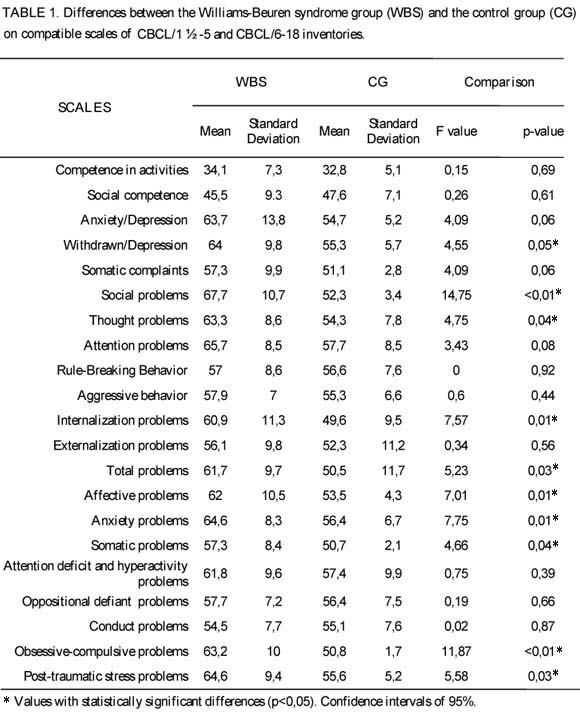BACKGROUND: Williams-Beuren Syndrome (WBS) is a genetic disorder caused by the deletion of multiples genes of long arm of chromosome 7 (region 7q11-23), which causes behavioral and intellectual disability. For the effectiveness of educational inclusion of these children, multidisciplinary approaches are needed to guide teachers and parents. AIM: to describe the behavioral, cognitive and language profiles and to identify autistic behavior in a group of children and adolescents with WBS. METHOD: 10 children and adolescents with WBS, aged 5 to 16 years, and 10 children and adolescents with typical development, matched by gender and age. Instruments used for assessment were: Nonverbal Intelligence Test (Leiter-R); Child Behavior Checklist (CBCL/1½-5; CBCL/6-18); Language Exam (TIPITI) and the Autism Screening Questionnaire (ASQ). RESULTS: the group with WBS presented a greater number of behavioral changes with more inattention and social problems. Regarding the Leiter-R scale the intelligence scores were below the average for age (67.8 points) in WBS. The control group (CG) scored into the average (101.2). The group with WBS presented discrepancy in the morphosyntactic structure as well as an increased number of echolalia in the subtests of TIPITI, when compared to the CG. CONCLUSION: based on the behavioral and cognitive problems found in individuals with WBS, the need for a multidisciplinary follow-up focused on cognitive stimulation and behavior control is confirmed, due to the interference of these characteristics in learning abilities.
Williams Syndrome; Intelligence; Behavior; Language

